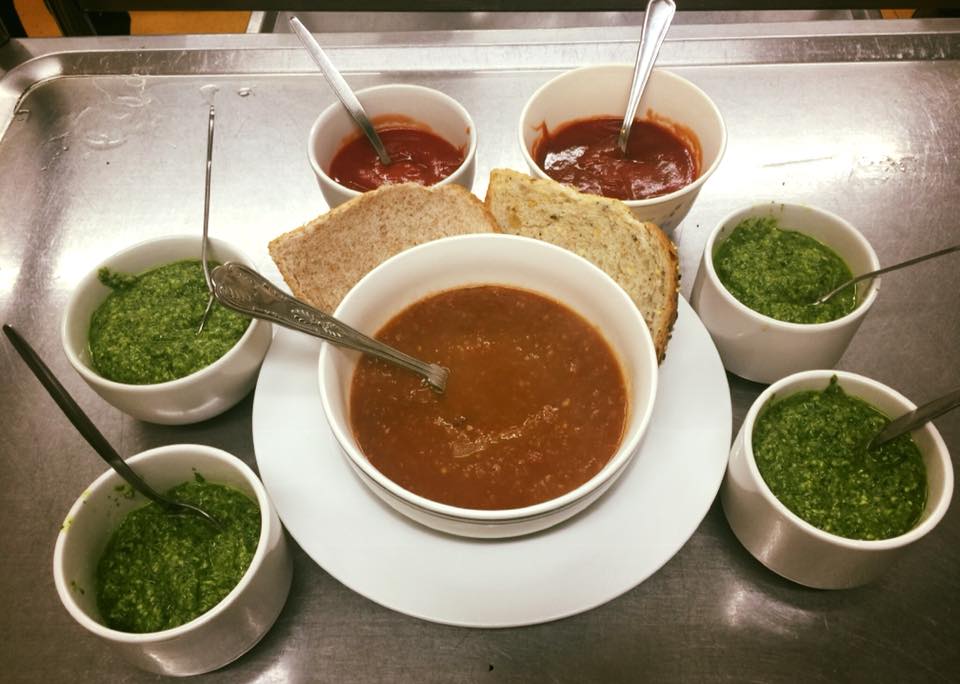One of the most common conclusions in debates about how to make our food system more sustainable, and reward and incentivise farmers for producing in a more sustainable way, is that consumers need to be persuaded to pay more for food.
And it’s true that we live in a world where unhealthy, processed and intensively-produced food is cheaper, while ethical food reflects the ‘true’, and higher, cost of food production.
But what if you can’t afford the ‘true cost of food’? What if all you’re thinking about is how to make a tiny weekly budget feed a family of four, plus pay heating bills, rent, and transport costs? What if, even more down the line, you are one of the rising number of people in Britain using food banks, some of whom are working but still cannot afford the bare minimum to sustain themselves and their family?
For those people, the true cost of food remains inaccessible, and it will remain inaccessible until the inequality and poverty are eradicated from this country.
That is why food sustainability is irrelevant while we still have inequality. Ethically-produced food that pays fair returns to farmers, uses lower inputs, with the highest animal welfare, will never become the norm if it doesn’t become an option for most people to even consider.
And it’s not just about accessibility and cost. The shame of visiting a food bank and viewing food poverty with pity takes away from the dignity of people – in one of the richest country’s in the world, shouldn’t we all have the right, as well as the ability, to make our own food choices and be able to participate fully as food citizens?

Sustainability in food is only one part of the story. Numerous studies have pointed out that the primary sufferers of the climate catastrophe will be those on lower or subsistence incomes in developing countries in the global south, not just due to their geographical location in tropical climates already prone to extreme weather, but due to their inability to protect themselves by flying out of a danger zone, or any other protection that wealth would offer.
There is a tension between sustainability and inequality that isn’t often articulated, but to ignore the link between the two is to deny the current situation, as well as hamper efforts to transform our own food industry, from farming methods, right through to food waste.
In the UK, the rising gap between rich and poor, with 10 per cent of households holding 45 per cent of our national wealth in 2018, and the growing demand on food banks, have largely been fuelled by the Conservative’s austerity policies of the last decade, with thousands of families left stranded without any financial support due to the disastrous roll out of the new welfare policy, Universal Credit, and cuts to lifeline benefits like disability payments.
The result? We now live in a country where there are more food banks than McDonald’s.
The upcoming general election has been fought largely under a frustrating media bubble of smear campaigns and personalities, as well as Brexit and the future of the NHS – both important in their own right.
But for anyone voting tomorrow with an interest in changing the way we produce and eat food, tackling inequality and poverty are not just sideline issues, they should be front and centre.













Thank you -What a well written article! It highlights the most important issue in the uk and reminds us that addressing social issues is absolutely vital .
Strange to say that food sustainability is irrelevant while we still have inequality – when it is unsustainable production that will eventually lead to higher prices as soil fertility declines.
I agree we need to tackle food poverty, but we can also recognise that a large swathe of the population could afford to eat more sustainably – if so motivated.
Also, it is often ‘bad’ food that is cheap, and healthy food that is more expensive, and this trend needs to reverse if we are to truly tackle food poverty.